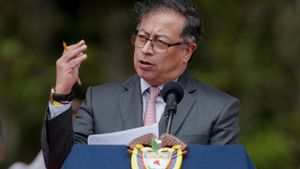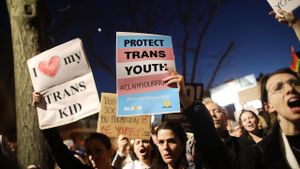CARACAS, Venezuela — A senior Trump administration official, Richard Grenell, made headlines this week with his unexpected visit to Venezuela aimed at urging President Nicolás Maduro to take back deported criminals who have committed crimes in the United States and secure the release of incarcerated Americans. The diplomatic meeting took place against the backdrop of Trump’s controversial hardline policies on Venezuela and has sparked significant debate among political analysts and members of the Venezuelan diaspora.
Grenell, who has previously served as U.S. ambassador to Germany and acting director of national intelligence, was delegated this mission by President Donald Trump. According to White House press secretary Karoline Leavitt, Grenell was tasked with two main directives: to identify arrangements for repatriation flights carrying Venezuelan nationals with criminal records and to advocate for the release of detained Americans held by the Maduro regime.
The visit was characterized as shocking by many Venezuelans who had held onto the hope of Trump maintaining his administration's “maximum pressure” strategy against Maduro. Mauricio Claver-Carone, Trump's special envoy to Latin America, confirmed the visit had been flagged as part of the administration's broader goals, emphasizing, "I would urge the Maduro government, the Maduro regime in Venezuela, to heed special envoy Ric Grenell’s message. Eventually, there will be consequences otherwise." His remarks signal continued U.S. intent to pressure the Maduro government on various fronts.
This diplomatic engagement occurred less than one month following Maduro's controversial re-election for a third term, which U.S. officials and numerous Western nations have refused to acknowledge due to evidence indicating widespread discrepancies during the electoral proceedings. If Maduro's claim to victory was already tenuous, it has nevertheless set the political stage for increased tensions between the U.S. and Venezuela.
Footage aired by Venezuelan state television showcased Grenell and Maduro's meeting at the Miraflores Palace, depicting the rare yet complex nature of interactions between the two nations. White House sources stated the meeting was initiated by the U.S. government, highlighting Grenell's diplomatic role at this pivotal moment.
During his engagement with reporters, President Trump reassured the public of his administration's position on Venezuela. He noted, “We want to do something with Venezuela. I’ve been a very big opponent of Venezuela and Maduro.” Trump’s pointed remarks about Maduro centered on both his administration’s disdain for the Venezuelan leadership and his concern for the Venezuelan people, claiming “They’ve treated us not so good, but they’ve treated, more prominently, the Venezuelan people, very badly.”
Despite the administration's objectives, not all voices within the Republican party support Grenell's visit; some critics have denounced the timing as inappropriate and counterproductive. Notably, Elliott Abrams, who served as special envoy to Venezuela during Trump's first administration, voiced his discontent, stating, “A meeting with Maduro will be used by him to legitimize his rule and show the Americans recognize him as president.”
The political unrest surrounding Venezuela has erupted since Maduro's recent election, leading to mass protests and the detention of thousands. Reports indicate over 2,200 individuals have been arrested, among them several Americans allegedly involved with efforts to destabilize the Maduro administration, including one identified as a former Navy SEAL. While none of these Americans have been officially categorized as wrongfully detained by the U.S. government, their status remains precarious.
Trump's administration has taken formidable actions against immigration, aiming to remove criminal Venezuelans from U.S. soil. The recent developments coincide with plans to reinstate policies aimed at deporting hundreds of thousands of Venezuelans. Appropriately alarming are the reports indicating the revocation of protections for around 600,000 Venezuelans, posing risks of deportation for various individuals from this vulnerable population.
More than 7.7 million Venezuelans have fled their home country since the onset of the crisis back in 2013. Migration trends indicate increasing numbers are now targeting the United States, seeking refuge from economic hardship and political oppression. Grenell’s visit appears to align with Trump’s broader immigration tactics, as the entire administration navigates the complex interplay of international diplomacy and domestic policy.
This isn't Grenell's first attempt at negotiating with Maduro's government. During previous efforts in 2020, his attempts to release imprisoned Americans yielded no success and were marred by uncertainty and mistrust. The latest mission serves as another litmus test for Trump’s renewed diplomatic push, seeking to reevaluate outcomes and expectations moving forward.
With Grenell's recent success resulting in the release of six American detainees, captured on social media with grateful exchanges, it appears there may be varying outcomes from his newest endeavors. Despite the challenges, the focus remains on repatriation flights and resolving the status of Venezuelan nationals with criminal records, underpinning the heightened urgency surrounding this matter.
Discussions surrounding Venezuela's political future and the role of international observers will only intensify as Grenell's mission continues to unravel. The outcome of these talks may shape U.S.-Venezuelan relations for years to come and determine the extent of engagement between the two nations amid increasing geopolitical tensions.



